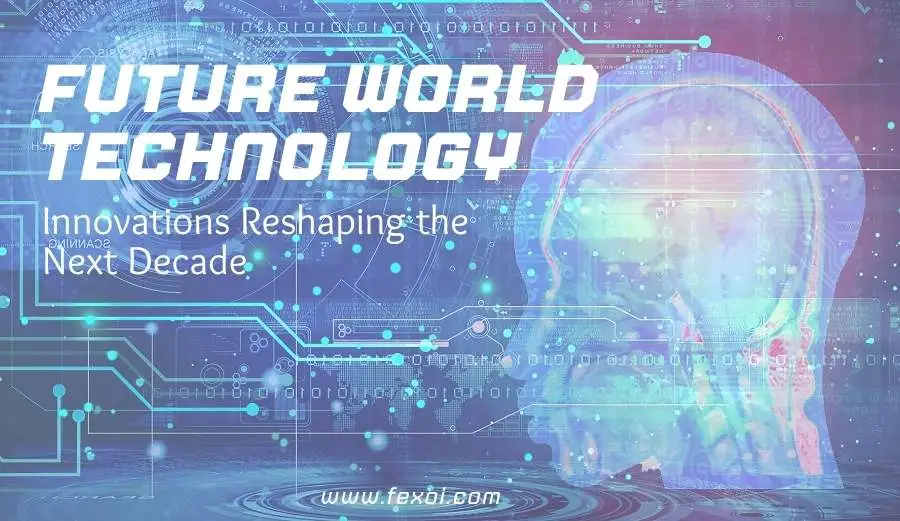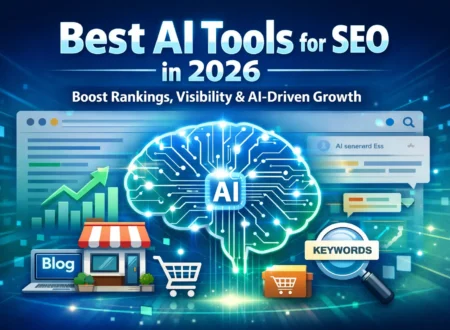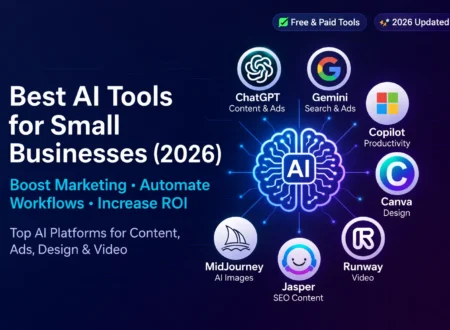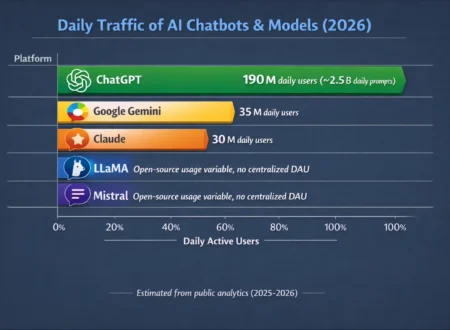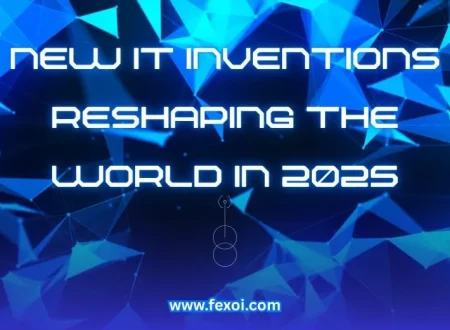Emerging technologies are reshaping our world at an unprecedented pace redefining how we communicate, work, learn, and access healthcare. we’ll dive into the most groundbreaking innovations and future IT technologies driving global progress — all designed to help you understand what’s next.
As we enter the 2030s, the convergence of AI, quantum computing, biotechnology, and space technology is no longer science fiction — it’s our evolving reality.
What Is Future World Technology?
Future world technology refers to next-generation innovations poised to reshape civilization by solving global challenges and enhancing human capability. These range from artificial intelligence (AI) and blockchain to clean energy, augmented reality, and beyond.
Examples of future IT technologies include:
- AI & Machine Learning: Powering automation, creativity, and predictive intelligence.
- Quantum Computing: Solving complex problems that traditional computers cannot.
- Blockchain: Securing data and transactions in decentralized systems.
- 5G & 6G Networks: Driving real-time connectivity and edge computing.
- AR/VR & Metaverse Platforms: Bridging the Digital and Physical Worlds
- Space Tech: Commercial space travel and satellite internet.
- Biotech & Neural Interfaces: From gene editing to brain-computer integration.
Statista projects that global spending on digital transformation will soar to $3.9 trillion by 2027, with AI and robotics at the forefront of this technological shift.
Why It Matters: Real-World Impact of Future Technology
Future world technology goes beyond gadgets it’s driving a profound transformation in how we live, work, and interact with the world around us. Here’s how it’s already changing the world:
1. Healthcare
- AI is assisting in diagnostic imaging and drug discovery.
- Robotics and telehealth enable remote surgeries and patient monitoring.
- mRNA technology, once used in COVID-19 vaccines, is being applied to cancer treatment.
2. Education

- AR/VR classrooms are revolutionizing how students learn.
- AI tutors offer personalized learning based on student data.
- Blockchain is ensuring credential verification and diploma authenticity.
3. Finance
- AI- and blockchain-powered FinTech is revolutionizing banking by making it more secure, transparent, and accessible to a broader population.
- Smart contracts enable trustless, programmable transactions.
4. Work & Automation
- AI-powered tools such as ChatGPT and Copilot are significantly enhancing productivity across various industries.
- Robotics are replacing repetitive, manual labor — reshaping manufacturing.
Top 5 Future IT Technologies to Watch in the 2030s
Let’s take a closer look at five emerging IT technologies poised to revolutionize the global digital and physical infrastructure in the 2030s:
1. Artificial General Intelligence (AGI)
Artificial General Intelligence goes beyond today’s AI capabilities by aiming to create systems that can understand, learn, and apply intelligence across a wide range of tasks—just like a human. Unlike narrow AI, which excels at specific jobs like voice recognition or image classification, AGI could solve novel problems, apply reasoning, and adapt without being explicitly programmed for every task.
Research giants like OpenAI, DeepMind, and academic institutions worldwide are working tirelessly to bridge the gap between human-level intelligence and machine learning systems. If successful, AGI could transform industries—automating complex roles in healthcare, legal services, education, and scientific research. However, its development also raises serious ethical, social, and regulatory questions, especially regarding job displacement, bias, and autonomy.
2. Quantum Internet
Quantum internet is set to revolutionize cybersecurity. Quantum communication, unlike traditional data transmission methods, utilizes quantum entanglement and superposition to create nearly unhackable channels for transmitting information securely. With quantum key distribution (QKD), any attempt to intercept the data would immediately alter the quantum state, alerting both the sender and receiver.
Countries like China, the United States, and members of the European Union are investing heavily in the development of global quantum networks. This Future world technology is expected to enable secure transmission for everything from banking and governmental operations to military and diplomatic communication. By the 2030s, the quantum internet could serve as the foundation for a globally secure communication infrastructure.
3. Synthetic Biology
Synthetic biology merges biology, engineering, and computer science to design and build novel biological components and systems, enabling groundbreaking advancements in medicine, agriculture, and environmental sustainability. This rapidly advancing field is reshaping industries through innovations like:
- Lab-grown meat, which addresses sustainability and ethical concerns related to animal farming
- Gene editing with CRISPR, enabling precision medicine and potential cures for genetic disorders
- Biofuels and bioplastics, providing cleaner alternatives to fossil fuels and reducing environmental impac
- As synthetic biology evolves, it will become a cornerstone in combating climate change, addressing food scarcity, and revolutionizing healthcare.
4. Decentralized Internet (Web3)
Web3 represents a shift from centralized web platforms controlled by a few corporations to a decentralized internet, where users own and control their data and digital assets. Powered by blockchain technology, Web3 includes:
- Decentralized applications (dApps)
- Non-Fungible Tokens (NFTs)
- Digital identities and smart contracts
This movement is not only disrupting finance (DeFi) but also transforming digital content ownership, gaming, and governance. In the 2030s, Web3 could redefine how we interact with the internet—shifting power from tech giants to individual users.
5. Smart Cities & IoT (Internet of Things)
The fusion of urban planning with advanced tech is giving rise to smart cities, where data from interconnected devices drives more efficient services. Key features include:
- Smart grids that enhance energy distribution efficiency and minimize power outages
- AI-driven traffic management systems that reduce congestion and shorten commute times
- Predictive policing tools, helping law enforcement allocate resources more efficiently
- Integrated public infrastructure, including systems like smart lighting and automated waste management, is enhancing urban efficiency and sustainability.
As the population grows and urbanization intensifies, smart city infrastructure will be vital for sustainable living, reducing carbon footprints, and enhancing public safety and quality of life.
What Experts Say
“Future world technology is no longer optional — it’s inevitable. Businesses, governments, and individuals who fail to adapt risk becoming obsolete.”
— Dr. Maya Lin, Futurist and Professor of Emerging Technologies at MIT
Experts emphasize that ethical development and governance must guide this progress. For instance, frameworks from Google AI Principles and OECD AI Policy Observatory aim to ensure responsible tech deployment.
Challenges of Future Technologies
Despite the excitement, there are risks:
- Data Privacy Concerns: With sensors and algorithms tracking behavior, safeguarding user data is essential.
- Automation could displace more than 800 million workers worldwide by 2030, according to McKinsey.
- Bias in AI Systems: Machine learning algorithms may unintentionally adopt human biases present in their training data.
- Digital Divide: Not all regions have equal access to these innovations.
Addressing these issues through global cooperation and regulatory bodies is key to equitable tech evolution.
FAQs for Future World Technology
1. What is meant by future world technology?
Future world technology refers to emerging innovations and systems designed to reshape global industries, economies, and societies. These include artificial intelligence, quantum computing, space exploration, biotechnology, and smart infrastructure. These technologies aim to enhance human capability, solve complex problems, and improve everyday life.
2. How will future IT technologies impact jobs?
Future IT technologies will significantly change the job market. Although automation and AI might eliminate certain jobs, they will simultaneously generate new opportunities in fields like data science, cybersecurity, robotics maintenance, and AI ethics. The key to staying relevant is continuous learning and upskilling in tech-related fields.
3. Which technologies are shaping the future world?
Key technologies that are shaping the future include:
- Artificial Intelligence & Machine Learning
- Quantum Computing
- Blockchain & Web3
- Biotechnology & Genetic Engineering
- Augmented and Virtual Reality (AR/VR)
- 5G/6G Telecommunications
Each of these technologies contributes to smarter systems, faster problem-solving, and new ways of interacting with the digital and physical world.
4. Is the Future World Technology sustainable?
Yes, many future technologies are being built with sustainability in mind. For example:
Innovators are developing clean energy solutions such as solar, wind, and hydrogen fuel.
- Energy-efficient data centers
- Sustainable agriculture using AI
That said, large-scale adoption and ethical implementation will determine long-term sustainability.
Conclusion: Embracing the Future Starts Today
The rise of future world technology is more than just a trend it’s the evolution of how we live, work, and think. From intelligent machines to decentralized systems, the future holds endless possibilities for those who are ready to adapt and innovate.
To thrive in the era of future IT technologies, individuals and organizations must:
- Stay informed
- Embrace digital transformation
- Invest in continuous learning
- Support ethical and inclusive innovation


